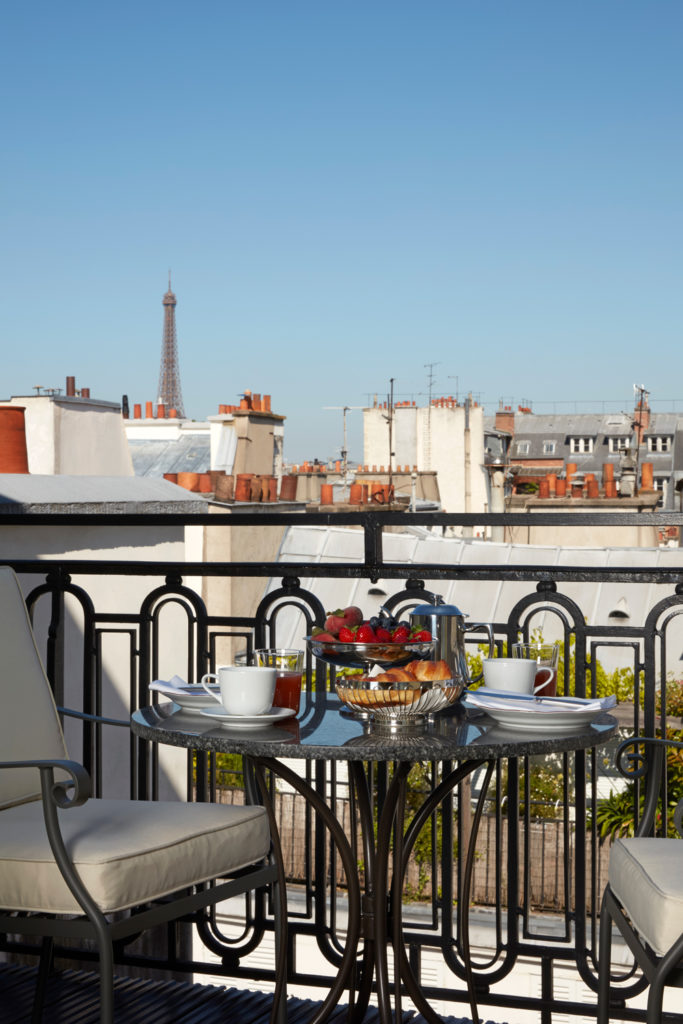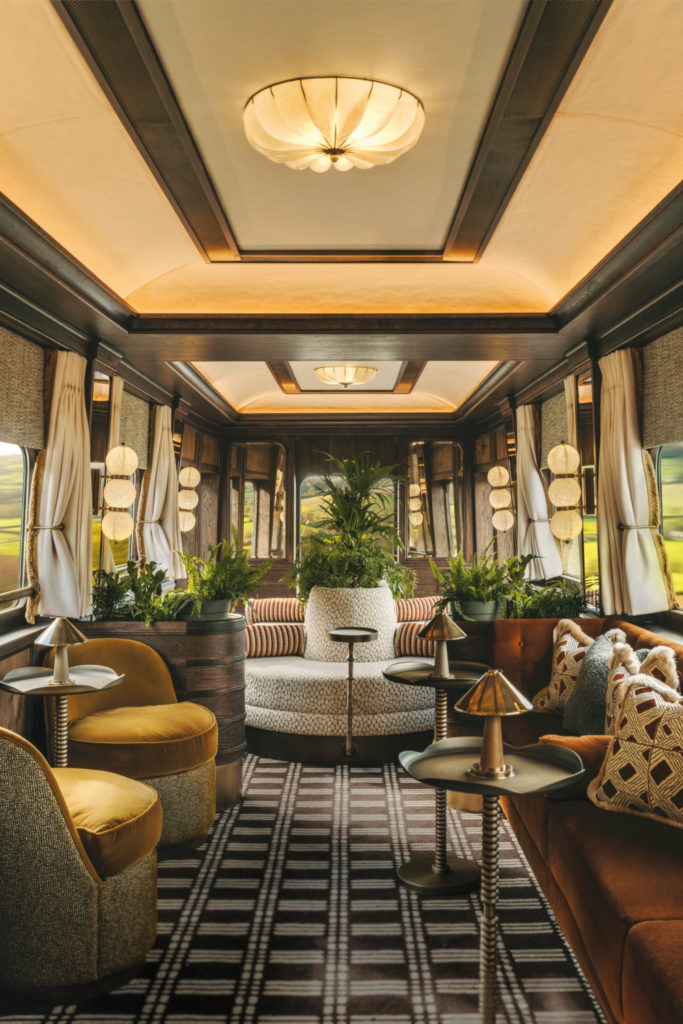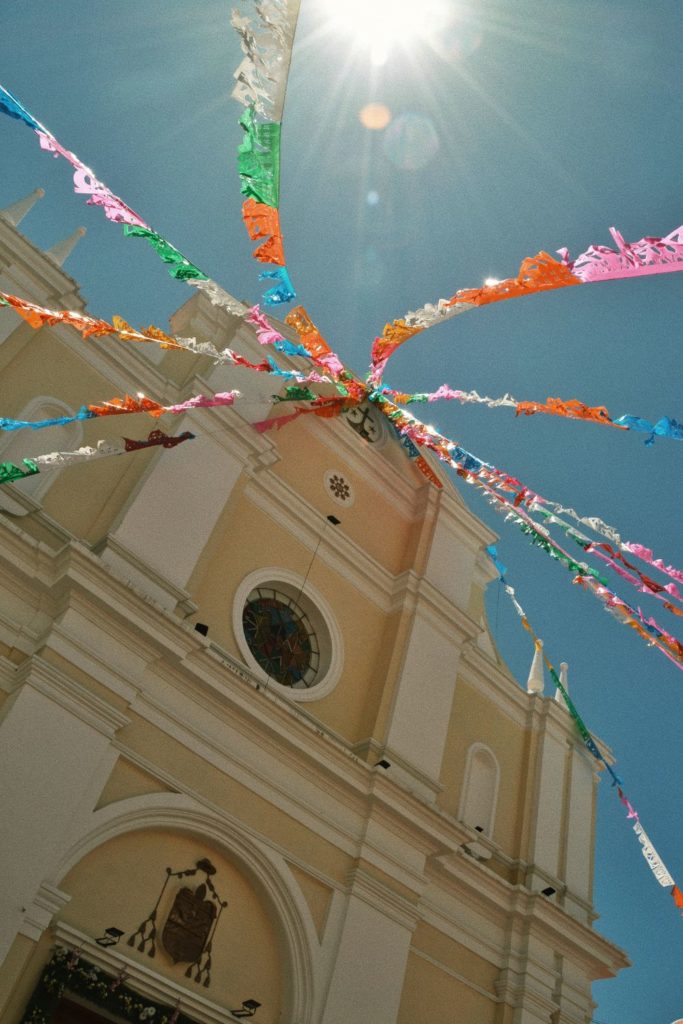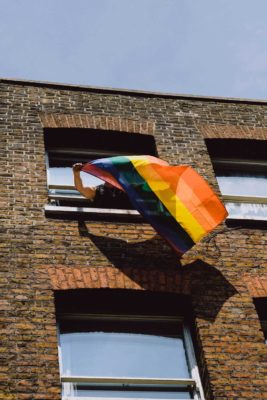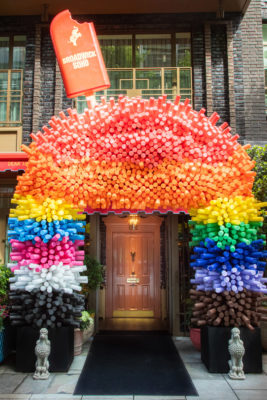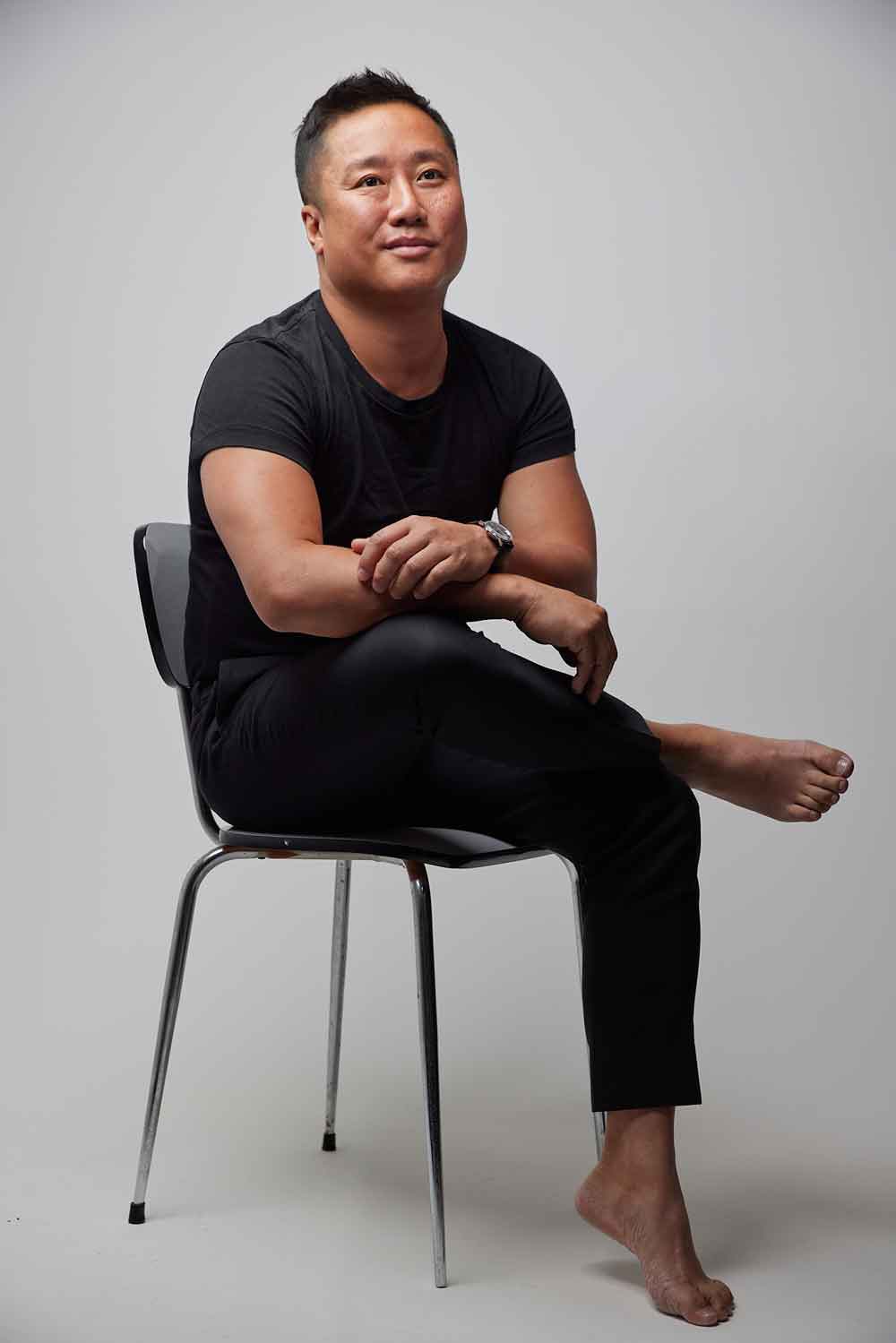
Pride Spotlight: Uwern Jong On LGBTQ+ Travel
By
8 months ago
Making the world bigger for a marginalised community.
This Pride month, we’re spotlighting Uwern Jong, co-founder and Experientialist®-in-Chief of OutThere, a multi-award-winning luxury and experiential travel media business for the LGBTQ+ community and their supporters. We spoke to Uwern about his work in queer travel, the state of affairs in 2025, and whether boundless travel is really possible for a community whose very existence is being challenged in so many parts of the world.
Q&A: Uwern Jong
Firstly, can you give us the story behind OutThere?
OutThere was birthed fifteen years (and a pandemic) ago, as a luxury and experiential travel magazine for the LGBTQ+ community. My co-Founder (and our Creative Director) Martin Perry and I saw an opportunity to create a magazine that wasn’t just about gay spaces, stereotypes and the bubbles we live, work and play in. Don’t get me wrong, we are ride or die supporters of, and love everything about, our community and queer culture, but we felt there was so much more to being queer than what the LGBTQ+ media landscape at the time suggested. Of course we understood the reasons: we sought safety in numbers, we wanted to support affirming destinations and travel providers – that will always remain important. But I wanted us to get out into the rest of the world more, to show up, to step outside the bubble.
Furthermore, in the few instances that LGBTQ+ travel was covered by the mainstream media, it was predominantly gay white-male-leaning, conforming to a specific gay archetype. We wanted to change that. OutThere celebrates all parts of the rainbow while also demonstrating that LGBTQ+ travel has so much more to offer. As a community, we are interested in food, art, history, culture, nature, and adventure – like everyone else – but we want to experience these things in spaces where we feel supported and valued.
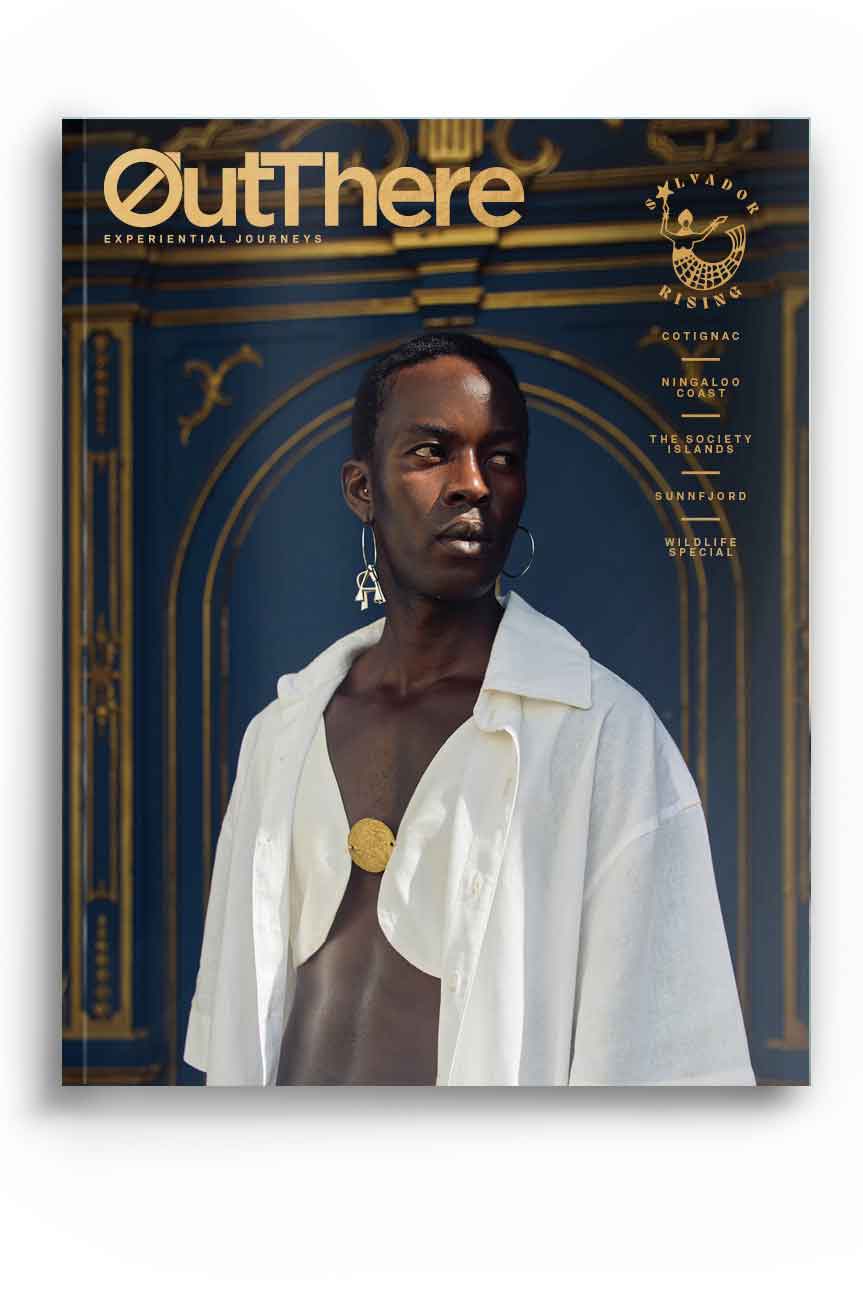
The Salvador Rising Issue of OutThere is on sale from July 2025 at OutThere.travel
Today OutThere also boasts an incredible following of allies too, nearly half our readers, of people who aren’t LGBTQ+ themselves but who are inspired by our unique brand of inclusive storytelling. These are equally affluent and avid travellers who seek a heightened sense of safety, personalisation, celebration, and belonging in their journeys – simply because of who they are, how they identify, who they’re travelling with (or when travelling solo), and who they love. This includes solo female travellers, single parents, people of colour, and disabled travellers. Regardless of their sexual orientation, they tell us that OutThere has become their trusted, go-to source of inspiration for their travels, because they too feel underrepresented in the mainstream.
We have come a long way when it comes to greater inclusion, but there are still so many moments where unconscious bias means that travellers still feel marginalised by the products and services offered. As such, I see OutThere as the disruptor in the industry. We’re here to demonstrate that there is more than just one way to travel or to sell travel. And over the last 15 years we’ve been in business, disrupt we have.
It feels like there is nothing but bad news for the queer community at the moment, how safe do you think the LGBTQ+ community feel travelling in 2025?
There will undoubtedly be impacts in the way the community travels. In the short term, I believe that the world will get smaller before it gets bigger for LGBTQ+ travellers. We’ll see people returning to and supporting destinations where they feel safest. But there are also emerging destinations where society has become more accepting over time, who are decriminalising being LGBTQ+ and some even actively promoting themselves as safe and inclusive havens, to combat the fear that the community may be feeling. On the whole, despite it being challenging times, my glass is half-full, and I’m actually encouraged that the world is becoming more open and accessible for LGBTQ+ travellers. There are so many more places today where for the most part, we can feel safe and celebrated. However, we must acknowledge that in some parts of the world, LGBTQ+ rights are indeed being rolled back. As a global community of queers and allies, we must never become complacent,
What is your opinion on travel to the most dangerous countries for the queer community, both by straight and LGBT tourists? Should we boycott travel to certain destinations?
I truly believe in boundless travel, [read Uwern’s thoughts on the subject here, which informs the way OutThere approaches its content] but of course, it comes down to each individual’s comfort level. I know LGBTQ+ people who will visit the ‘scariest’ of places, undeterred in their desire to explore the world. I also know others who would never dream of spending money in a country that is not supportive of LGBTQ+ rights or where they wouldn’t naturally feel safe.
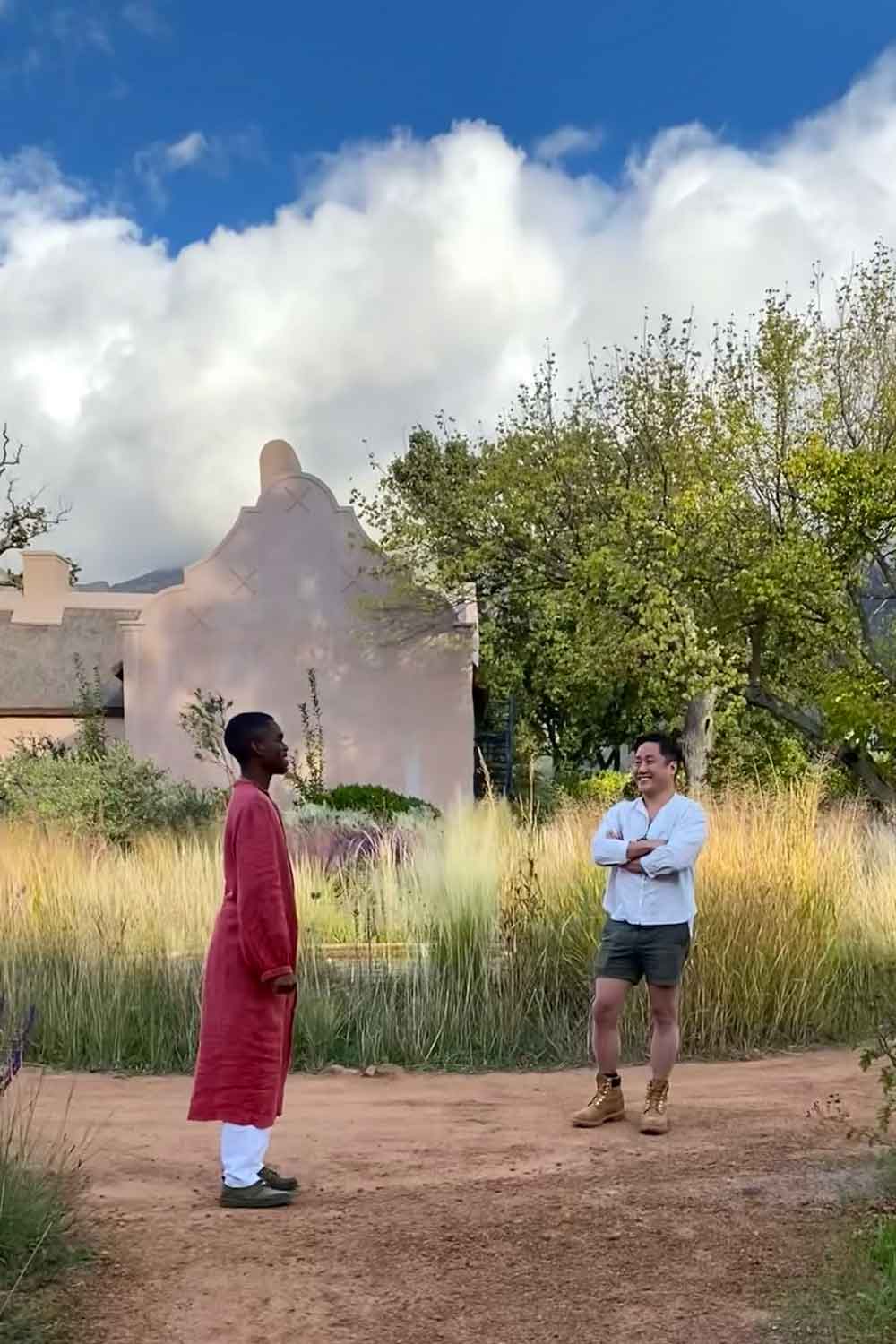
Uwern in South Africa (c) Leo Morgan
However, I am also aware that there are LGBTQ+ people everywhere in the world. And things will never change if we don’t show up. Of course, we must find ways to travel there safely and never put ourselves or them in any danger.
Thankfully there are many travel providers who can put together programmes and itineraries that can guarantee that. And these businesses, hotels, guides, agencies – whether they’re run by LGBTQ+ people or by allies are super important, because not only do they bring safety to the equation, they bring authenticity.
And while landscapes, architecture and cuisine may dazzle, it is always the people who breathe life into a destination, especially LGBTQ+ people, their allies and people from diverse backgrounds who don’t often get a chance to shine.For me, people are not just subjects; they are narrators, custodians of culture and windows into the heart of a place. Every conversation, every fleeting interaction, every perspective formed and lesson learned is an invitation into a world unseen by the casual observer. People bring authenticity. They make the unfamiliar relatable. Their dreams, struggles, and joys mirror our own, dissolving borders and reminding us that, despite our differences, there is a universal human thread that binds us all. And you’ll find these people in every destination, even the scary ones.
Will you see me in Saudi Arabia? Personally, I am interested to travel there to see its sights, meet the people and potentially be part of the change/catalyst. But right now, I’m focused on positive destinations when it comes to OutThere storytelling. So, for me, it’s a matter of priority, not a matter of boycotts. It’s just that the more conservative countries are not a priority for me, at least for now. It’s not a no; it’s just ‘not right now’.
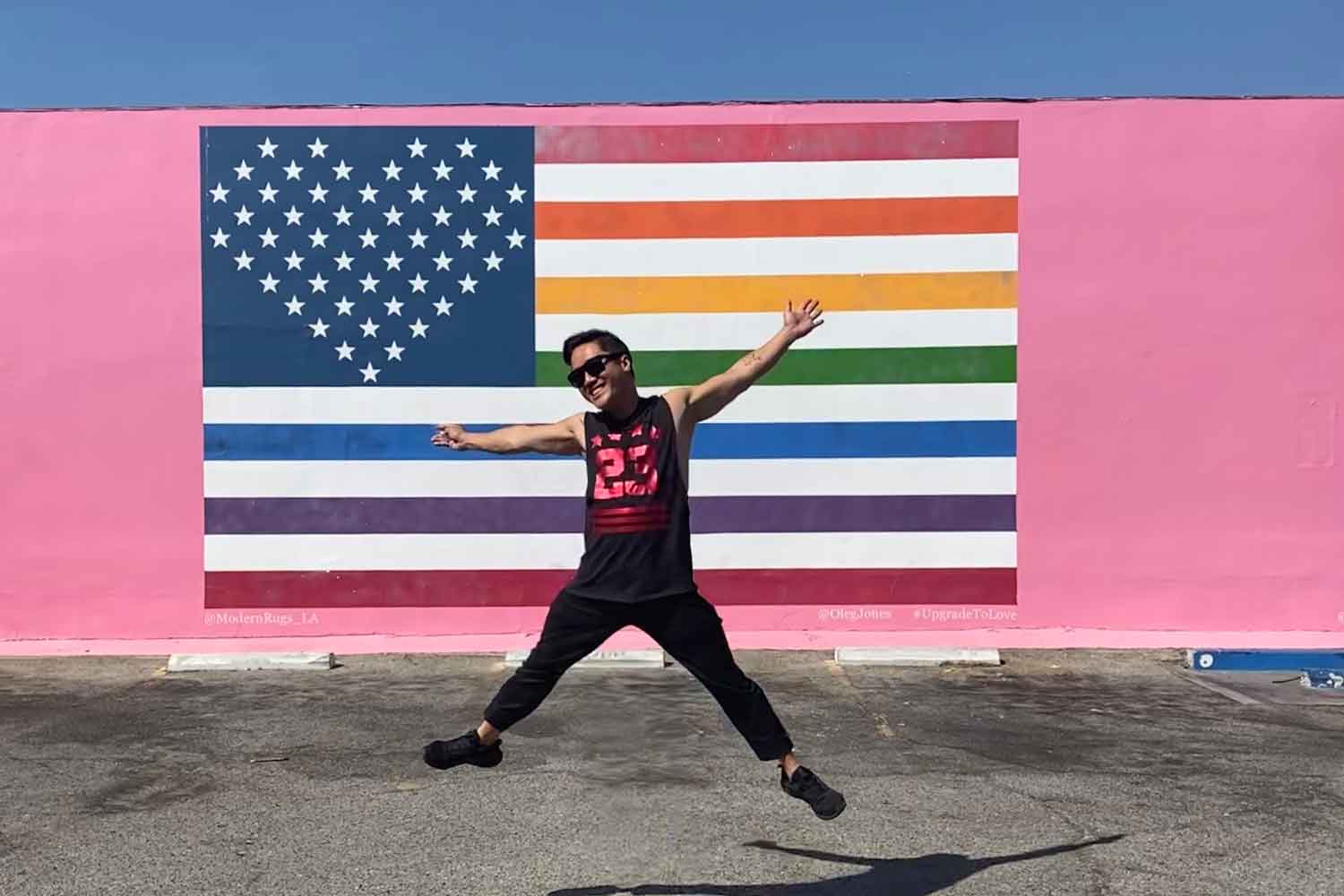
Uwern at Pride in West Hollywood
How can travel businesses support LGBTQ+ travellers better?
Brands catering to LGBTQ+ travellers must go beyond token gestures and authentically embed inclusivity into their DNA. And there are many ways brands can begin this journey. Authentic representation in marketing and storytelling is essential, as is year-round advocacy for the community. I often recommend cultural sensitivity training for staff – it helps foster a culture of inclusion, both internally and in guest interactions. And the key word here is authentic. Brands should be part of the community, not outsiders looking in. Partnering with local LGBTQ+ organisations and communities helps support queer people in destinations while fostering understanding and empathy.
Understanding the need for greater, truly personalised experiences is also crucial. “LGBTQ+” is a broad term, but within the community, there are gender, age, race and other socio-demographic differences that influence what we seek and need from travel. A one-size-fits-all approach simply doesn’t work and we have to learn to embrace intersectionality as well, which is true inclusivity. By embracing true inclusivity, brands elevate their offerings – not just for LGBTQ+ travellers, but for everyone who values diversity, belonging and the freedom to explore the world as they are.
What are some of the best and worst travel experiences you’ve had when it comes to inclusion?
Let’s not talk about the worst travel experiences… But what I will say I am encountering more and more is rainbow-washing and it’s becoming a real issue. It is becoming harder to distinguish between those that truly celebrate the community and those that act merely to profit from it. There have been some instances recently where a brand makes all the right noises to be inclusive, but when I get there, they’re far from it.
We’re also seeing in the United States how quickly some of the biggest corporate brands have rolled back their DEAI (Diversity, Equity, Accessibility, and Inclusion) initiatives; brands that once seemed supportive of the community, happily changing their logos to rainbow colours every June, make a complete about turn when the wind changes. So what I’m saying is to take the time to truly understand and support those who support us, to prevent potentially challenging issues arising when you travel.
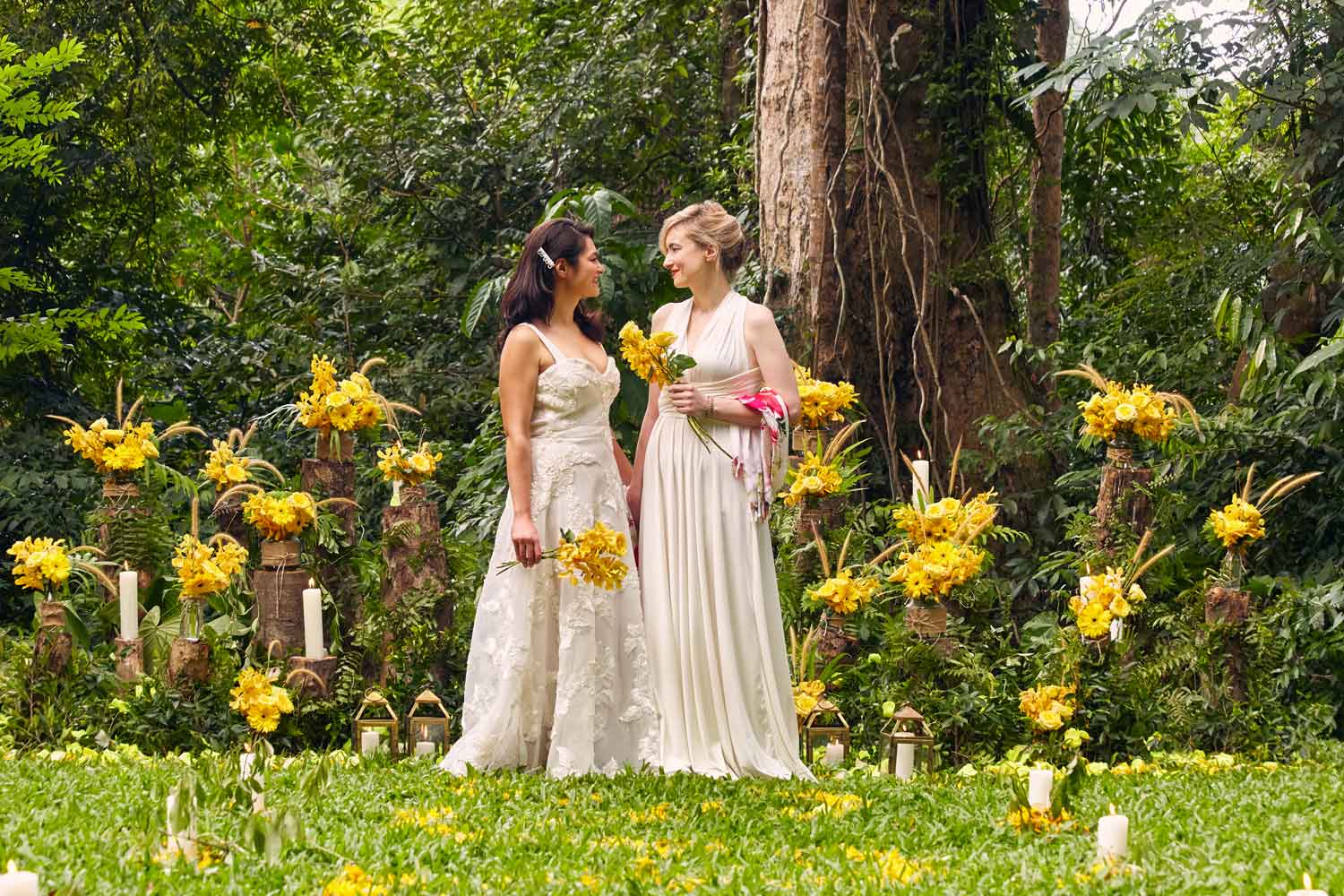
(c) Tourism Authority of Thailand/Martin Perry
As for the best [experiences], well it’s got to be the moments when I get to connect and foster genuine cultural exchange with people and get to embrace the world not as a spectator but as a participant, a protagonist. My favourite moments are where there is true dialogue, not a monologue, where there’s curiosity – not the kind that seeks to consume, but the kind that seeks to understand.
From an LGBTQ+ perspective, some of my best experiences include a recent trip to Tahiti, where I learnt about the pre-colonial concept of third gender. Being in Thailand when full marriage equality was enacted – something even Thais thought wasn’t possible – was so emotional and powerful.
On greater inclusion, meeting black winemakers in South Africa and indigenous ones in South Australia, turning the dial on traditional expectations, were also phenomenal. Going on part of the Civil Rights trail in the USA was a moving experience too. Doing a tour of Venice created for the blind “opened my eyes” to sensorially engaging with a destination. We rely so much on our sight to observe, that take for granted our other senses – like stopping to hear church-bells toll in a particular way, or to smell fresh bread being baked from a six hundred year old bakery.
I feel genuine cultural exchange is built on reciprocity. It is not enough to observe; we must also give ourselves. This can be as simple as sharing our own stories over a meal, exchanging perspectives with a local queer artist or offering our skills in ways that enrich all.
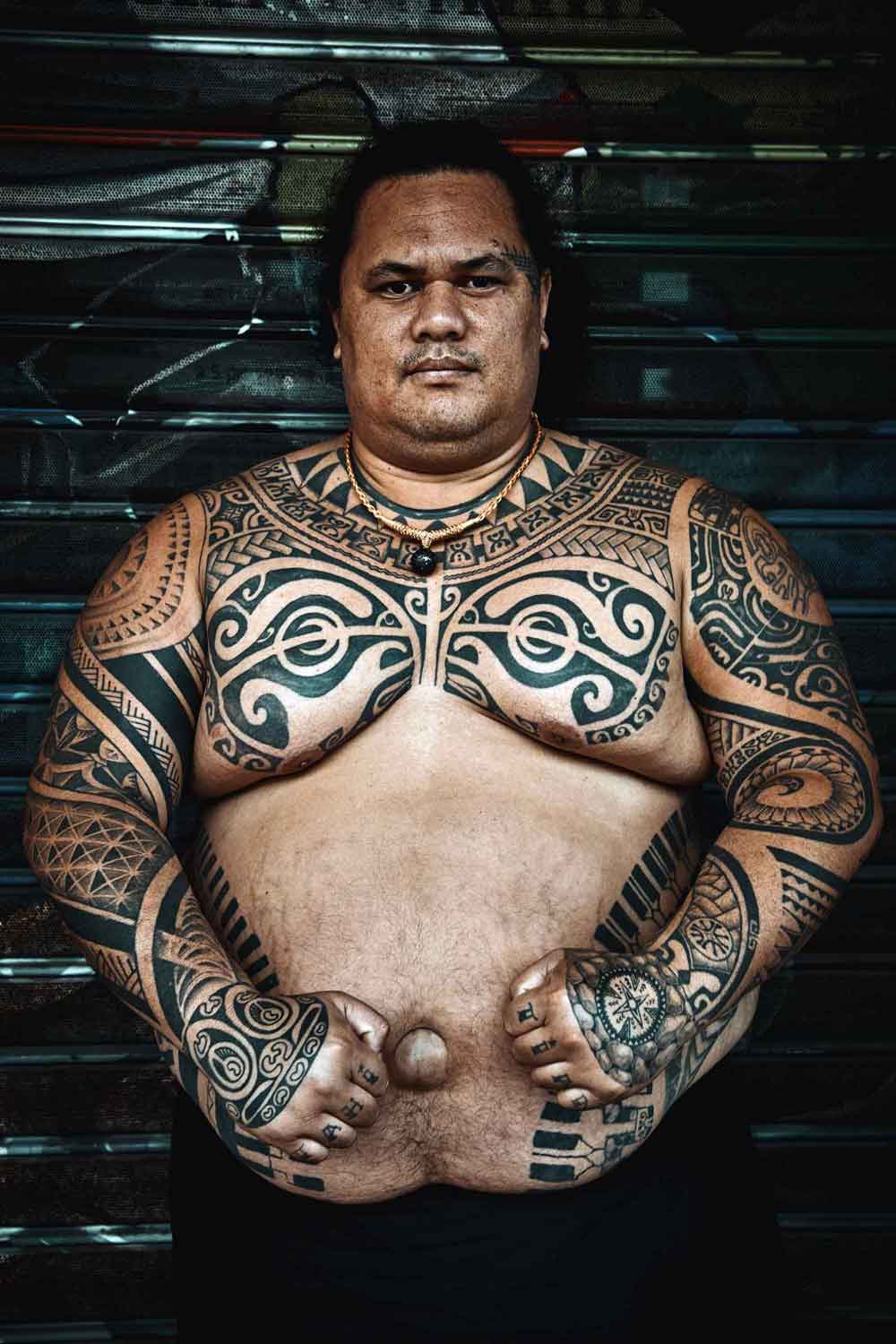
(c) Martin Perry
Finally, what’s your hope for the future of inclusive travel?
In a world that is still defined by its divisions – particularly now more than ever before – I strive to be a voice for, and give voice to, travellers and travel experience makers who still feel marginalised by mainstream luxury travel. I hope to be part of a world where luxury travel is not just an exclusive pursuit but an expansive and inclusive experience for all.
Travel, in its purest form, has the power to transform – to challenge preconceived notions, broaden perspectives and celebrate the richness of human diversity. Together we can turn the tide in travel – so that it becomes a space that embraces and celebrates our differences while recognising the shared human experience that binds us all.
Currently, there are many experiences that cater a lot to the traveller’s comfort while keeping the realities of local communities at arm’s length. But meaningful travel is about engagement, about stepping outside the luxurious confines to connect with the people who make a place what it is. It is about choosing experiences that uplift local economies, supporting LGBTQ+-owned businesses, and ensuring that the tourism industry does not reinforce inequality but instead redistributes wealth in ethical, sustainable ways.
More About Uwern
Uwern Jong is co-founder and Experientialist®-in-Chief of OutThere, a multi-award-winning luxury and experiential travel media brand rooted in diversity, discovery and discernment. Established in 2010 alongside Creative Director Martin Perry, OutThere has become a leading voice in inclusive tourism, offering in-depth, first-person narratives that celebrate global cultural expressions and the individuals who make the travel world so unique.
He has been instrumental in initiatives such as the LGBTQ+ Travel Symposium series and the thought leadership event Icons of Inclusion and has spearheaded OutThere’s landmark not-for-profit Experientialist® Awards. His efforts have been recognised with numerous accolades, including being named one of Walpole’s 50 most influential people in British luxury in 2025 for the second time; being awarded as TTG (Travel Trade Gazette) LGBT+ Trailblazer of the Year in 2023; and receiving the Campaign Publishing Award for Editorial Leader of the Year in 2020.
Find out more about OutThere at OutThere.travel @outtheremag and Uwern @uwern


